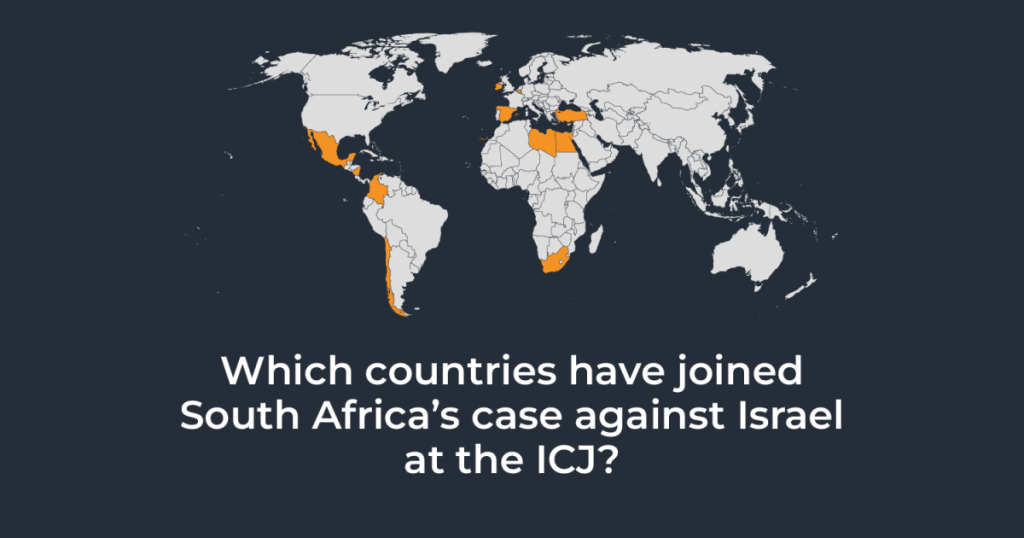More than 10 countries are backing South Africa’s genocide case against Israel at the International Court of Justice (ICJ). The case accuses Israel of violating the Genocide Convention in its war on the Gaza Strip, with a death toll exceeding 36,500. South Africa’s argument is that Israel has violated the 1948 Genocide Convention, established after the Holocaust, which requires all countries to prevent such crimes.
All states that signed the Genocide Convention have a duty to prevent and punish genocide. In this case, countries can intervene if they have a legal interest that could be affected by the ICJ’s decision. Countries that have joined or expressed intention to join South Africa’s case include Nicaragua, Belgium, Colombia, Turkey, Libya, Egypt, Maldives, Mexico, Ireland, Chile, Palestine, and Spain. These countries have either applied to join or declared their intention to support the case.
Spain announced its decision to join the case in response to Israel’s continued military operations in Gaza. The Genocide Convention defines genocide as acts committed with the intention to destroy a national, ethnic, racial, or religious group in whole or in part. Intervening countries must file a request with the ICJ to be permitted to participate, with the court having the authority to decide on their involvement. The treaty aims to prevent the recurrence of such atrocities as seen during the Holocaust.
South Africa initiated the case in December, alleging that Israel has committed genocide against Palestinians in Gaza. The ICJ process can be lengthy, and cases can take several years to conclude. International support for South Africa’s case has continued to grow, with many countries and organizations welcoming the initiative as part of a global call for a ceasefire in Gaza. The conflict in the region remains a deeply entrenched and complex issue, with ongoing violence and humanitarian concerns.
The legal proceedings at the ICJ will be closely watched as countries weigh in on the allegations against Israel. The case highlights the importance of upholding international laws and conventions to prevent atrocities and ensure accountability for violations. The support from multiple countries reflects a broader international effort to address the ongoing conflict in Gaza and seek justice for the victims. The outcome of the case could have far-reaching implications for future conflicts and the protection of civilians in warzones.
As the case progresses, it will be essential to monitor developments and consider the broader implications for international law and justice. The involvement of multiple countries demonstrates the global significance of the conflict in Gaza and the need for a coordinated response to address the human rights abuses and humanitarian crisis. The ICJ’s decision could set a precedent for how similar situations are addressed in the future and may have a lasting impact on efforts to prevent genocide and uphold international norms.












